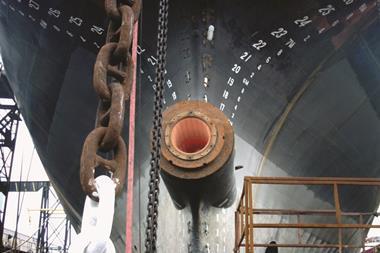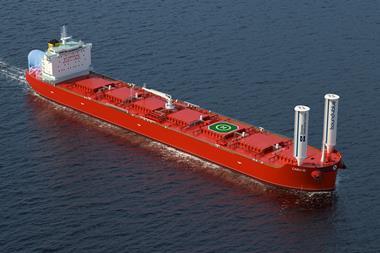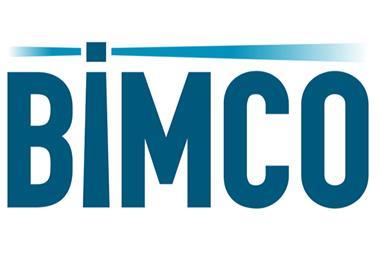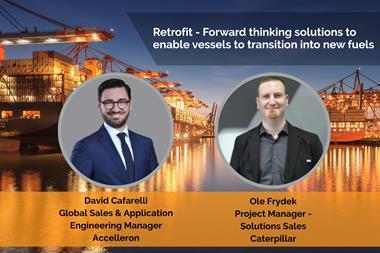An innovative propulsor inspired by nature was delegates’ choice for the coveted Motorship Award, presented at the 44th Propulsion and Future Fuels Conference yesterday (21 November).
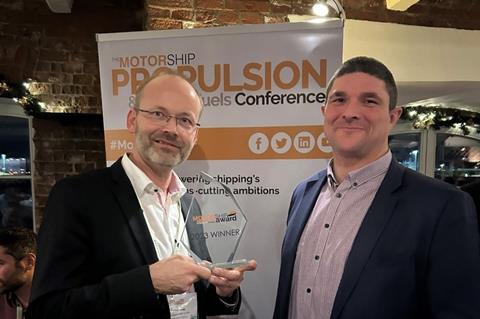
ABB Marine & Ports’ Dynafin replicates the motion of a whale’s tail to deliver dramatic improvements in propulsion efficiency compared to conventional thrusters. With a current power range reaching 4MW, the interacting and independently acting blades of Dynafin achieve propulsion efficiency upwards of 80%, versus around 70% for the company’s most efficient Azipod thrusters, according to Janne Pohjalainen, Global Product Line Manager, ABB Dynafin, ABB Marine & Ports.
Pohjalainen collected the prize at the conference dinner at Hamburger Elbspeicher, just across the river Elbe from the Port of Hamburg and Blohm + Voss shipyard. The novel thruster technology secured the highest vote despite stiff competition from three other innovations that highlight the radical thinking being deployed by ship technology suppliers confronted with the demand for rapid, industry-wide decarbonisation.
Each year The Motorship Award recognises new engine and propulsion technologies that have the potential to dramatically improve efficiency across the maritime sector. The editor’s nominations are voted on after a conference session during which nominees explain the development, application and impact of their innovations.
ABB’s Dynafin was joined on the shortlist by technologies offering emissions improvements on two- and four-stroke engines. WinGD presented Variable Compression Ratio technology that dynamically optimises two-stroke engine combustion depending on fuel, engine load and ambient conditions. Wärtsilä teamed up with pilot project partner MSC Shipmanagement to report on its radical derating concept for two-stroke engines, Fit4Power. A further Wärtsilä nomination highlighted the incremental measures that have delivered, in the form of a new 31DF engine, methane emissions reductions of around 60%.

